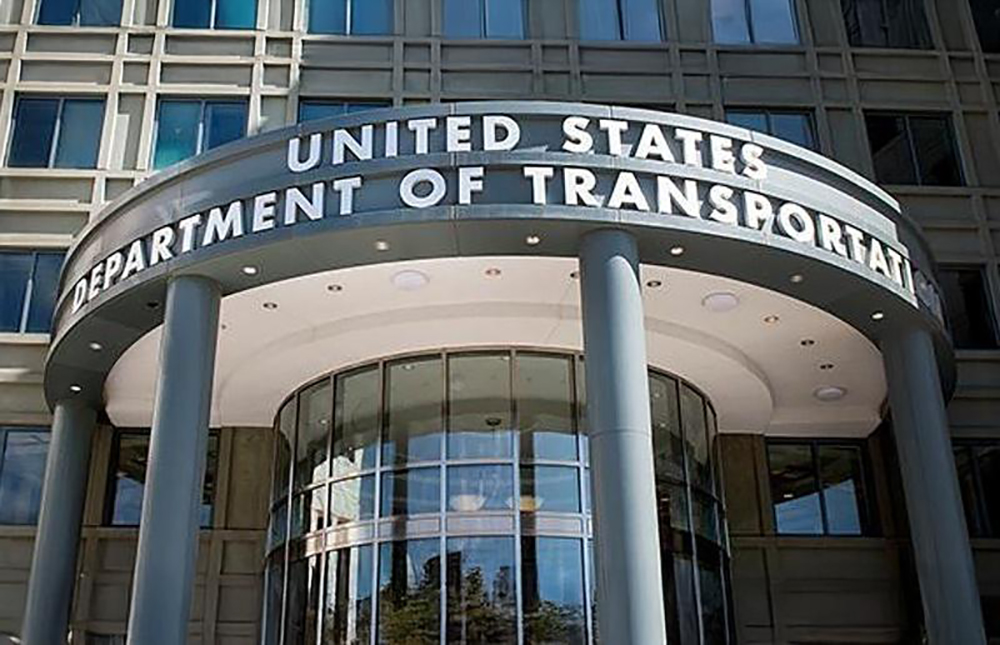|
Getting your Trinity Audio player ready...
|
A Game-Changer for Airline Passengers
Edited by: TJVNews.com
The U.S. Department of Transportation (DOT) recently enacted a significant new rule that requires airlines to offer automatic cash refunds to passengers in a variety of scenarios, aiming to streamline the refund process for inconvenienced travelers. Announced in April 2023, this rule went into effect Monday, representing a major win for travelers while potentially introducing some confusion, as noted in a recently published report in Travel Pulse.
One of the most substantial aspects of the DOT’s ruling is its requirement for prompt cash refunds when flights are canceled or significantly altered. As the Travel Pulse report explained, travelers can receive these refunds if they choose not to accept a rebooked flight or travel credit, marking a shift from previous policies where passengers often faced extended delays and refund negotiations.
Secretary of Transportation Pete Buttigieg emphasized the importance of this standardization, stating, “Passengers deserve to get their money back when an airline owes them—without headaches or haggling.” Under this new rule, travelers will benefit from clearer terms on what constitutes a “significant change,” defined as a change in flight departure or arrival by more than three hours for domestic flights and over six hours for international flights. Travel Pulse reported that this is a marked improvement from previous regulations where thresholds for “significant changes” varied considerably.
The rule also encompasses other scenarios that entitle passengers to refunds. According to the DOT’s specifications highlighted by Travel Pulse, a refund can be claimed if:
Departure or arrival occurs from a different airport than initially planned.
There are additional flight connections.
The passenger is downgraded to a lower class of service.
The connecting airport or type of plane is changed, resulting in accessibility issues for passengers with disabilities.

Another provision of this rule focuses on the handling of checked baggage, an issue that has long been a point of frustration for travelers. The report on Travel Pulse detailed that passengers who report mishandled baggage will be eligible for a refund of their checked bag fee if the bag is not returned within 12 hours for domestic flights or within a range of 15 to 30 hours for international flights, depending on flight duration. This new baggage policy reflects a structured approach to handling delayed baggage, supporting passengers who previously received little recourse in such situations.
The DOT’s refund rule is projected to save U.S. travelers over $500 million annually by reducing the costs associated with delayed or canceled flights, mishandled baggage, and other disruptions. By mandating that refunds be issued automatically rather than only upon request, the rule alleviates much of the negotiation and frustration that has often accompanied airline refunds in the past. As Travel Pulse pointed out, this regulatory change creates a new standard for airline accountability, empowering travelers and removing much of the ambiguity surrounding refund policies.
This rule also extends to a variety of pre-purchased services, including Wi-Fi, seat selection, and in-flight entertainment. If a passenger pays for any of these services and the airline fails to deliver, they are now entitled to a full refund for the fee, a move expected to improve accountability across the airline industry. Travel Pulse highlighted that this change is designed to create transparency and streamline the refund process, so passengers won’t have to request refunds or navigate complex airline procedures to get their money back.
Under the DOT’s rule, refunds must be issued in the full amount of the original payment, directly back to the passenger’s original form of payment, whether cash or credit card. Importantly, this refund policy is designed to be automatic, eliminating the need for passengers to jump through administrative hoops. Airlines are required to issue these refunds within seven business days for credit card purchases and within 20 calendar days for other payment methods. According to Travel Pulse, this aspect of the rule is expected to alleviate the frequent frustration travelers face when requesting refunds, as passengers will now benefit from prompt cash returns without the need for alternative compensation options, such as travel credits or vouchers.
This regulatory update also stipulates that airlines are prohibited from offering travel credits, vouchers, or any alternative form of compensation as a substitute unless the passenger explicitly requests it. By enforcing cash refunds, the DOT aims to ensure that passengers receive tangible reimbursement rather than airline-centric solutions that might not suit their immediate needs.
To further support these new requirements, the DOT now mandates that airlines maintain 24/7 customer service availability. As reported by Travel Pulse, airlines must provide live communication channels—whether through phone or live chat—to ensure that passengers can quickly and effectively address any refund or service concerns. This continuous access to customer support is intended to streamline the passenger experience and provide direct support for resolving service-related issues, especially in the case of ancillary services that may not have been fulfilled.
This regulatory overhaul by the DOT is part of a broader effort to protect travelers and hold airlines accountable for service quality, as Travel Pulse has emphasized. By setting a clear standard for refunds and requiring airlines to proactively deliver them, the DOT’s rules aim to save passengers time and reduce the frustration often associated with refund requests. With an estimated $500 million expected in annual savings for travelers, the new rule represents a significant shift in how airlines must handle customer service and compensation.




